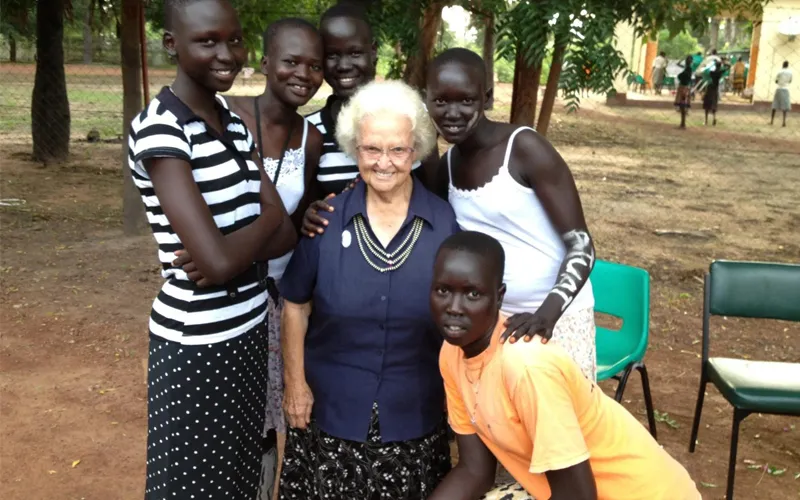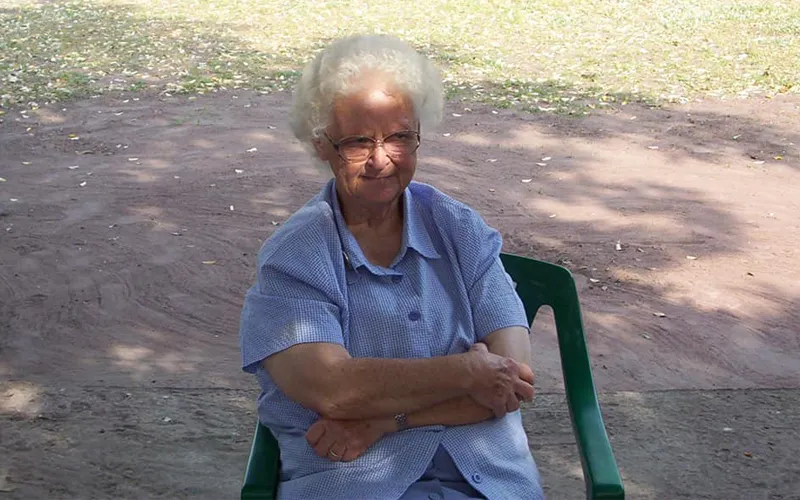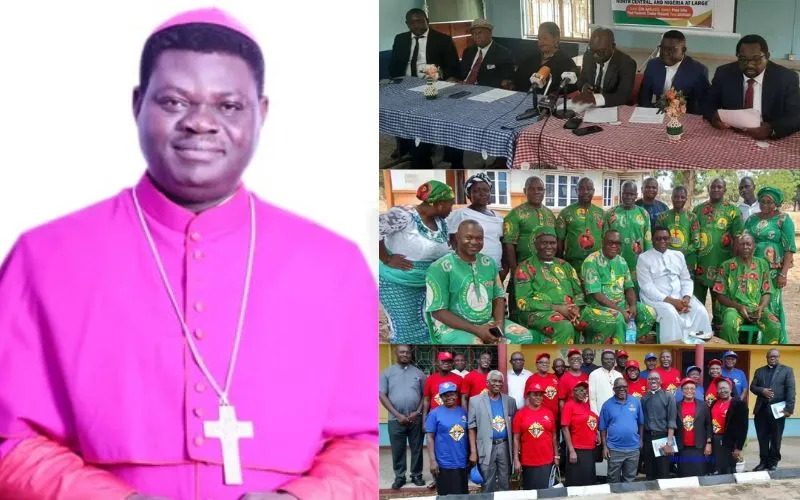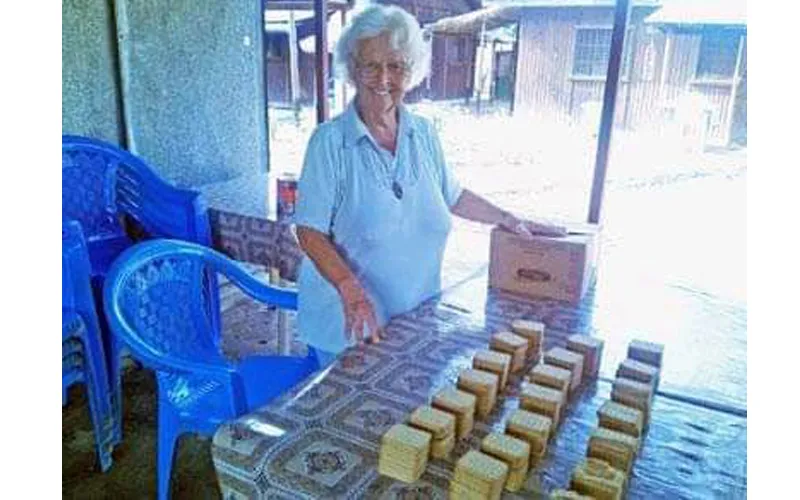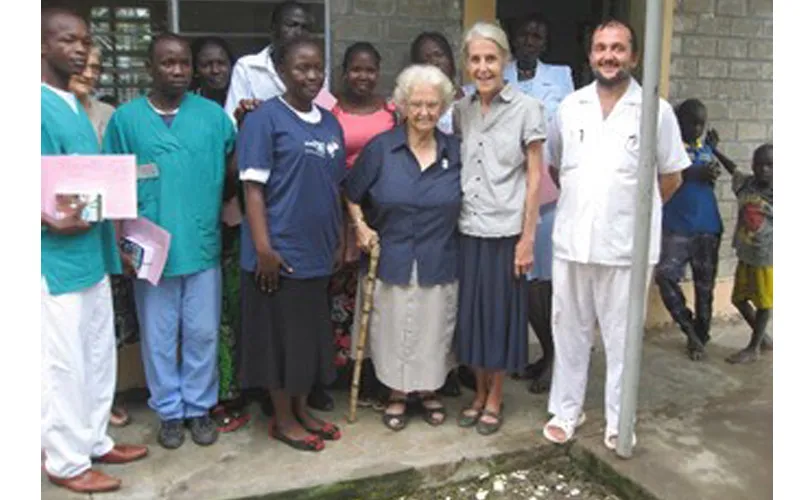
Sr. Batchelor is said to have started her education apostolate in South Sudan from scratch when she embarked on building decent classrooms for the learners and also trying to convince parents to allow their children to go to school.
The Sisters share that later, the education infrastructure in the mission of Mapuordit progressed from small scattered thatched buildings and open classrooms under trees, to fully permanent structures.
With Sr. Bachelor’s pioneering efforts, the Mission now had a desk for each pupil, painted walls, and text books.
According to the leadership of the Missionary Congregation, the current primary school enrolment is 1,452 while the secondary has an enrolment of 427 students including over 65 female students and that all structures are permanent.
(Story continues below)

Today, bamboo huts have given way to permanent buildings in education facilities in the mission of Mapuordit. Additionally, a well-equipped Secondary School is in place to prepare students to take their place in society.
Girls’ education is a priority and, on the increase, OLSH members in South Sudan have indicated in their commemorative booklet shared with ACI Africa, adding, “Sr. Mary Batchelor laid the foundations of OLSH education ministry in South Sudan.”
The country was hostile territory for Missionaries who were opposed and sometimes attacked for dissuading children from joining war as child soldiers in the violence that wrecked the country for many years.
Raphael Makuei, a former pupil of Sr. Batchelor who completed his primary school education at St. Comboni primary school, Mapuordit in 1998 remembers the Australian-born Sister who always went out of her way to make learning enjoyable for children in South Sudan.
“Sr. Mary was always very patient with pupils who were slow in learning… Through Sr. Mary's Math lessons, I fell in love with figures and am now an accountant with over 10 years of experience,” Mr. Makuei who works as a Cashier at South Sudan’s Lakes State Legislative Assembly told ACI Africa.
He further recalled, “After marking our homework or exams, she (Sr. Batchelor) would put stickers written 'excellent,' 'good,' 'fair' or 'poor' on each individual’s sheet, depending on one’s performance in the test. She carried sweets and biscuits to motivate pupils.”
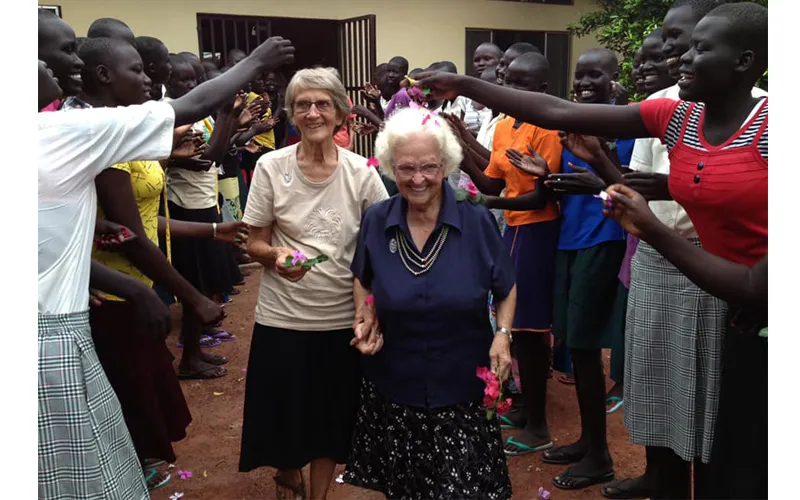
He remembers that at some point, the Religious Sisters serving at Mapuort alongside members of the Clergy were accused of using communicating with the Khartoum-based government through the Catholic Church-owned radio call.
Mr. Makuei recalls that the Religious Sisters escaped a beating by a whisker when a native Priest, the late Fr. Raphael Riel, offered to take all the strokes of the cane instead.
“The Sisters were arrested sometime in 1996 together with Fr. Raphael Riel and Fr. Michael Barton by the SPLA guy called Marial Nuor who accused the clergy and Religious of using the radio (call) to communicate with the Khartoum government,” Makuei said.
The Clergy and Religious Sisters were imprisoned in a bush called Ngop, Makuei recalled, adding, “The Sisters and Priests were to be lashed by the soldiers, but Fr. Raphael Riel offered to be lashed on their behalf all.”
Victoria Aledi, an alumnae of Loreto School, Rumbek describes Sr. Batchelor as “a compassionate woman full of light and inspirations.”
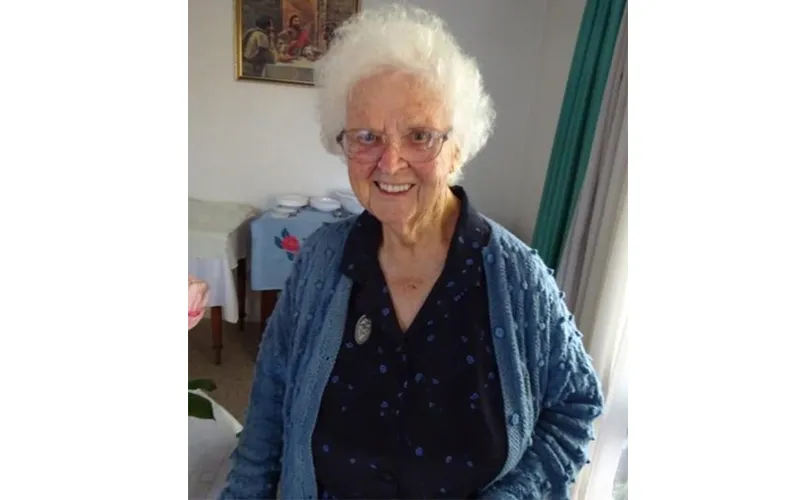
“She was a great teacher and a mentor to pupils, students and a great instructor for teachers,” Ms. Aledi who works for a national organization within the Catholic Diocese of Wau tells ACI Africa.
She says that the Catholic Missionary Sister had “a great zeal of transforming lives both spiritually and academically” and that she often sponsored children from poor families in school.
“She had a burning spirit with her, a spirit that pushed her to work day and night in a community where education system wasn't good,” Ms. Aledi says, and adds, “Despite all the ups and downs, the hostility, teachers' strike, low enrollment of children because parents were reluctant in sending them to school, she still managed to produce great students with great leadership skills and these students are now living fulfilled lives.”
Ms. Aledi shares that many successful students emulated Sr. Batchelor’s beautiful handwriting and her eloquence.
“What I could remember during her time in Mapuordit was how she used to provide biscuits for us just to keep us in school. May her beautiful soul rest in peace and may we, her past students, continue to live her legacy,” Ms. Aledi shared with ACI Africa.
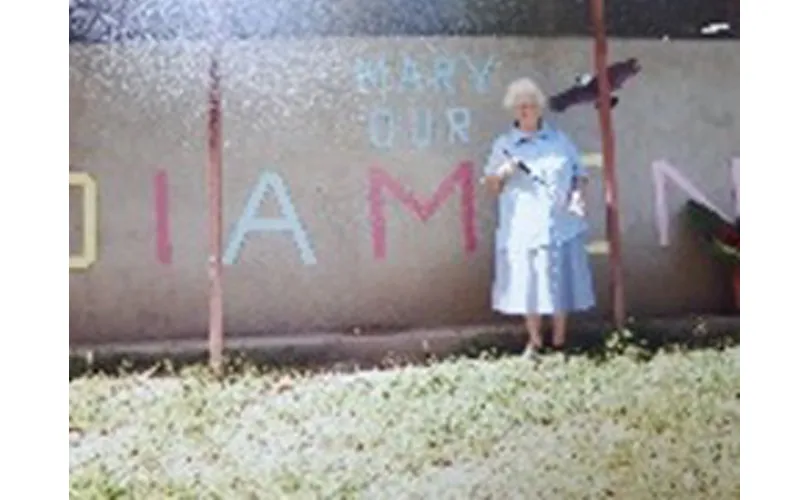
Deborah Akec Kuonynin, the Minister for Public Service in South Sudan’s Lakes States remembers Sr. Batchelor who served with diligence despite the hardships she underwent.
“I remember Sr. Mary Batchelor as a Religious Sister who sacrificed to come and serve in a war-torn country wholeheartedly. She served with diligence and commitment,” Hon. Akec told ACI Africa.
She narrates that in 1997, Sr. Batchelor and Sr. Moira Lynch were taken away by the members of the Sudan People's Liberation Army (SPLA) to a place called Rol on the charges that they were misleading the students by urging them to refuse being conscripted in the army.
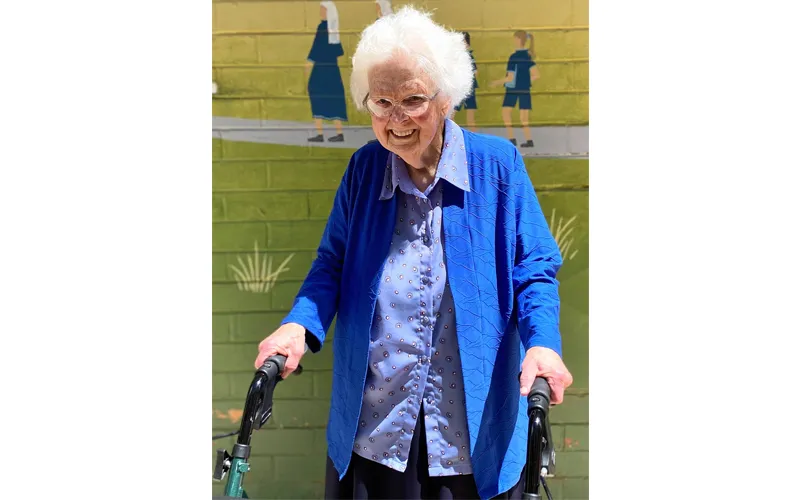
Throughout the ordeal, the two Religious Sisters never panicked and decided to continue their service in Mapuordit till their respective retirements, the government official of Lakes State told ACI Africa.
Hon. Taban Abel Guek, former deputy governor for the former Eastern Lakes State in South Sudan says that the departed Nun was like a mother to him.
“I have just learnt about the passing on of Sr. Mary Batchelor. It’s sad. Sr. Mary was like a mother to me. She molded me and she took very good care of me. I will never forget about Sr. Mary Batchelor in my entire life,” he says.
Peter Manyiel Acuek, the Principal of St. Comboni Secondary School in Mapuordit has acknowledged with appreciation Sr. Batchelor’s contribution to the school’s growth especially in its constructions.
The departed Catholic Nun built a library and a hall at St. Comboni Secondary School and an administration block at St. Comboni Primary School, Mr. Manyiel recalls, adding that the administration block is named Sr. Mary Batchelor Centre.
In a statement shared with ACI Africa Monday, June 7, Mr. Manyiel says that the two buildings as well as the successful people in South Sudan who had been taught by Sr. Batchelor would henceforth be a reminder of the Nun’s devotion to education in the country.
“Sr. Mary said in her farewell in July 2014 that she could not go home to Australia without a legacy behind her. And that her legacy would not be only structures in St. Comboni schools but also the students she had taught and staff she had trained. She also said that even though she would die as a Sister, she would remember all children she had taught as her own children,” the school head said.
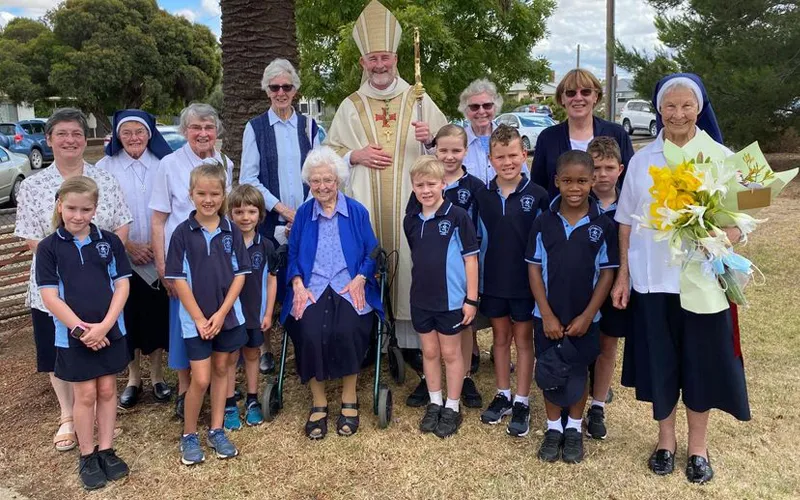
In his tribute to the Australian Nun, Mr. Manyiel mourns the departed Religious Siters who he describes as the best educator, formator, and a leader who led by example and with the hope of producing leaders.
According to the Comboni Secondary School Principal, Sr. Batchelor rendered invaluable and relentless services to the school and young people of South Sudan.
“She was always available to serve, ready to advise and wishing others well. She was good at initiating new staff and ever encouraging staff to upgrade academically. She was a servant who even without appointment cannot disappoint,” Mr. Manyiel says in his June 7 statement.
Agnes Aineah is a Kenyan journalist with a background in digital and newspaper reporting. She holds a Master of Arts in Digital Journalism from the Aga Khan University, Graduate School of Media and Communications and a Bachelor's Degree in Linguistics, Media and Communications from Kenya's Moi University. Agnes currently serves as a journalist for ACI Africa.



